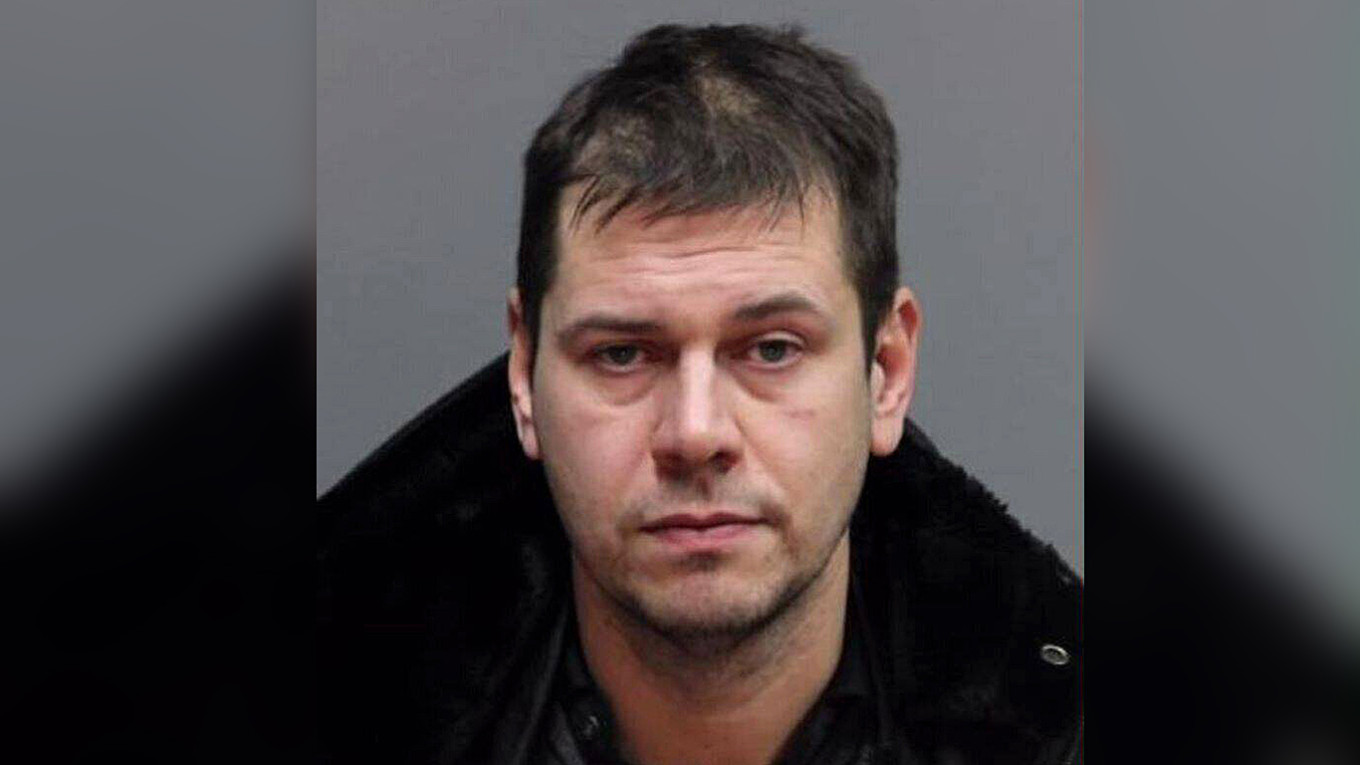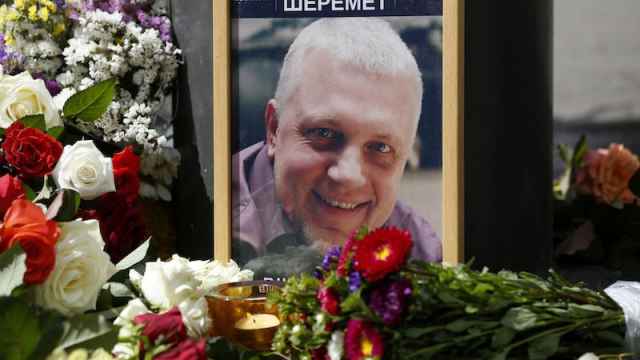A Finnish businessman wanted in connection with one of the largest corruption scandals in Finland’s history has been quietly evading justice in Belarus for the past five years, according to a new investigation by the Belarusian Investigative Center (BIC).
Arto Kalevi Autio, a former board member of the Estonian investment firm Brave Capital, is linked to a sweeping financial scandal that engulfed Finland’s state-supported Youth Foundation (Nuorisosäätiö). The organization, tasked with providing affordable housing for young adults, became the hub of an international scheme that diverted millions of euros into luxury real estate ventures across the Baltic states.
In addition to being wanted by Europol, Autio is now also the subject of an Interpol red notice, new findings show.
The BIC’s investigation was carried out in partnership with Finnish broadcaster Yle, Latvia’s Re:Baltica and Lithuania’s 15min.lt, with the support of the activist group CyberPartisans.
“This is a Finnish NGO. It’s supposed to provide affordable housing to Finnish youth. Why do they have a company in Estonia?” Finnish journalist Jyri Hänninen asked himself a decade ago.
Media outlets, local authorities and law enforcement would wonder the same.
Authorities discovered that the Youth Foundation (Nuorisosäätiö) had been channeling funds into speculative real estate ventures abroad, often at vastly inflated prices, since 2015. Court documents later showed that those involved pocketed the difference.
Authorities launched an expansive probe that resulted in several convictions. But one major figure slipped away: Arto Kalevi Autio.
Happy and corrupt
Finland is known for having the world’s happiest population and among the lowest levels of corruption. It also ranks second among almost 150 countries in terms of state social assistance.
The Finnish Education and Culture Ministry funds some 100 national youth organizations. One of these organizations, the Youth Foundation (Nuorisosäätiö), became the center of a corruption case, the traces of which led to Minsk.
Founded in the 1960s, the Youth Foundation’s mission is to provide affordable rental housing to Finnish young adults through the thousands of apartments it owns.
In 2015, the organization started diverting funds abroad, mainly to Estonia, where it was used to purchase high-end real estate in the upscale Pirita Beach area of Tallinn.
“A lot of money was withdrawn from the Youth Foundation. And most of it went to Estonia,” said journalist Hänninen.
According to Hänninen, the Foundation borrowed money against its own property holdings. It loaned out some of this money, including 12.1 million euros to the Estonian firm Pirita Holding for the purchase of a plot of land in Tallinn from its parent company, Brave Capital. The land purchased with those funds was later sold back to the Foundation at a substantial loss.
Following a series of similar financial abuses, only about 1.5 million euros of the 12.1 million euro loan issued by Brave Capital was returned to the Youth Foundation's budget.
The Finnish Housing Finance and Development Center, which partially funded the organization's activities, ordered it to stop when it discovered these investments.
“You need to understand that there is not that much corruption in Finland, and we don't have these corruption schemes on this level,” Hänninen said.
The Youth Foundation’s new management found the organization on the verge of bankruptcy, although its assets were estimated at 50 million euros by 2018.
“It is difficult to describe with words the chaos the Foundation was in,” said Jari Laine, the Foundation’s chairman at the time. “The bills were not being paid. At that time, there were 4,200 apartments. The heating and electricity were being turned off, and only a few million euros remained in the account. The total debt and other financial obligations amounted to nearly 300 million euros.”
Those involved in the corruption case were investigated and sentenced to prison. But one of the key participants, a board member of Brave Capital, managed to avoid trial.
Shelter from justice
Autio fled the European Union just as authorities started unravelling the Youth Foundation’s illicit financial network and settled in Belarus, which does not have an extradition treaty with Helsinki.
According to CyberPartisans, the Finnish national crossed the Belarusian border more than 80 times before permanently relocating to Minsk in 2021. He married a Belarusian woman, Krystsina Bazyleva, and moved into a modest apartment on Kalvaryiskaya Street.
Autio registered Amplion Trust in Minsk in 2018. His wife holds the position of deputy director. The enterprise isn’t exactly a success — in 2021 and 2022, its losses amounted to 43,000 Belarusian rubles (over $16,600). In addition, in 2022 and 2023, the Taxes and Duties Ministry recorded Amplion Trust's debt to the budget. According to a Belarusian court, Amplion Trust owes Minsk-based auditor Baker Tilly Bel more than 5,000 rubles (over $2,000).
The BIC discovered that Bazyleva was a board member of several Latvia-registered companies, including Amplion Trust, a namesake of the Belarusian Amplion Trust. Bazyleva appears on the owners registry of another Latvian company, Iskra Trust.
Bazyleva also appears to have links to multiple businesses in Latvia, where she obtained a residence permit in 2020, according to Re:Baltica. However, her Latvian holdings have since been transferred or dissolved. Repeated attempts by reporters to reach her by phone and email were unsuccessful.
Lock, stock and a silenced pistol
As Latvian authorities started probing Amplion Trust, ownership was transferred to Autio’s daughter, Emma Olivia Autio. Journalists traced the acquisition of at least 14 properties in Riga alone, worth nearly 12 million euros. One building became uninhabitable after a ceiling collapse, a case some investigators suspect was intentional to prompt redevelopment.
In Lithuania, 15min.lt identified 16 companies linked to Autio, most of them branches of Estonian entities. None file financial statements.
BIC unsuccessfully attempted to reach Autio’s daughter, to whom he transferred most of his Baltic assets.
Autio’s gambling habit also caught the attention of European law enforcement. Between 2015 and 2019, he reportedly lost more than 6 million euros in Estonian casinos, often using company bank cards and large cash withdrawals from business accounts.
Estonian tax authorities took notice. In the spring of 2023, Autio was convicted of tax evasion and illegal weapons possession for having a pistol with a silencer. The tax office demanded the recovery of almost 2 million euros in unpaid taxes.
He took a plea deal that drastically reduced the back taxes he would have been required to pay, and his 32-month prison sentence was suspended on the condition that he stay out of legal trouble during that time.
Autio attended his trial via video link. According to journalists from the Estonian publication Delovye Vedomosti, he said it was difficult for him to come to Estonia because he has been living in Belarus for so long.
This year, Autio will be able to return freely to Finland because a 10-year statute of limitations will have expired.
“The validity period of the suspicions of crimes related to the Youth Foundation, which are being investigated by the National Bureau of Investigation [of Finland], expires in December 2025,” the agency told the BIC.
Autio could not be reached for comment.
Belarus, under President Alexander Lukashenko, has long served as a haven for fugitives and politically connected exiles. Among them are Kurmanbek Bakiyev, the ousted former president of Kyrgyzstan; former members of Ukraine’s Berkut riot police; and most recently, fighters from the Wagner mercenary group who fled to Belarus after their failed uprising in Russia.
Uladzimir Zhyhar, a former law enforcement officer now with the opposition group BelPol, told the BIC that Minsk likely monitors foreigners like Autio and offers them “mutually beneficial cooperation.”
“His passport is marked upon arrival at the border, after which his movements are tracked, and eventually, individuals in civilian clothing approach him. Obviously, the person cannot refuse... And they offer him, let’s say, mutually beneficial cooperation,” Zhyhar said. “He can stay in Belarus, the security forces won’t bother him, and he, for example, is engaged in investing, helps find some loopholes to circumvent sanctions.”
This is an adapted version of an investigation by the Belarusian Investigative Center.
A Message from The Moscow Times:
Dear readers,
We are facing unprecedented challenges. Russia's Prosecutor General's Office has designated The Moscow Times as an "undesirable" organization, criminalizing our work and putting our staff at risk of prosecution. This follows our earlier unjust labeling as a "foreign agent."
These actions are direct attempts to silence independent journalism in Russia. The authorities claim our work "discredits the decisions of the Russian leadership." We see things differently: we strive to provide accurate, unbiased reporting on Russia.
We, the journalists of The Moscow Times, refuse to be silenced. But to continue our work, we need your help.
Your support, no matter how small, makes a world of difference. If you can, please support us monthly starting from just $2. It's quick to set up, and every contribution makes a significant impact.
By supporting The Moscow Times, you're defending open, independent journalism in the face of repression. Thank you for standing with us.
Remind me later.






